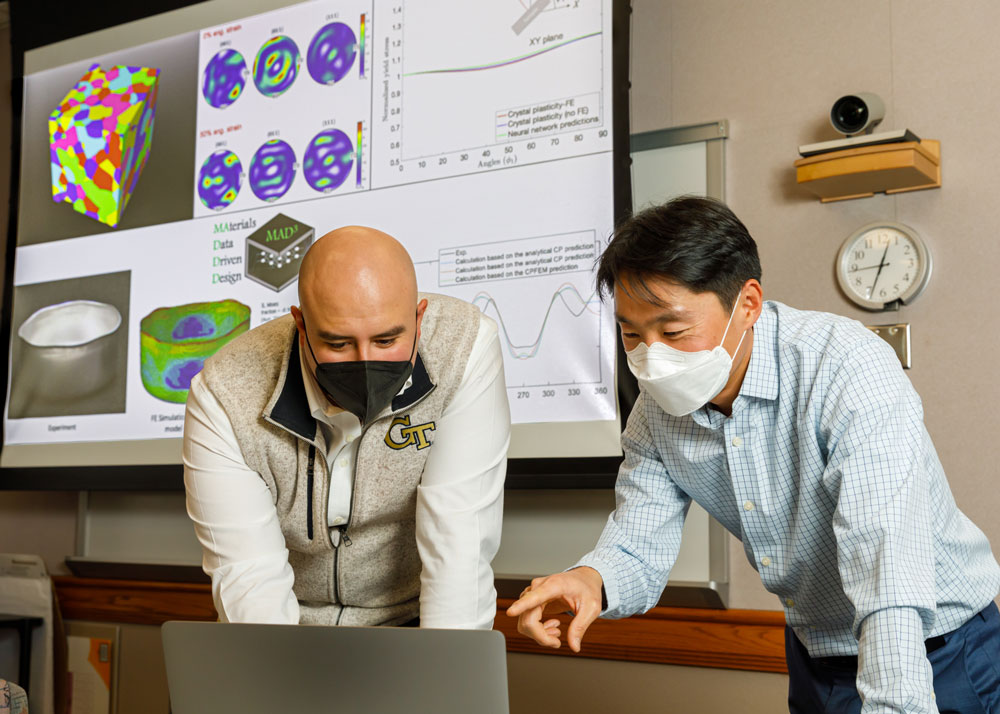
Machine learning used to predict direction-dependent mechanical properties of metals
A machine-learning algorithm developed at Sandia could provide auto manufacturing, aerospace and other industries a faster and more cost-efficient way to test bulk materials.
The technique was published recently in the scientific journal Materials Science and Engineering: A.
Production stoppages are costly. So, manufacturers screen materials like sheet metal for formability before using them to make sure the material will not crack when it is stamped, stretched and strained as it’s formed into different parts. Companies often use commercial simulation software calibrated to the results of various mechanical tests, said Sandia scientist David Montes de Oca Zapiain, the lead author on the paper. However, these tests can take months to complete.
And while certain high-fidelity computer simulations can assess formability in only a few weeks, companies need access to a supercomputer and specialized expertise to run them, David said.
Sandia has shown machine learning can dramatically cut time and resources to calibrate commercial software because the algorithm does not need information from mechanical tests, said David. Nor does the method need a supercomputer. Additionally, it opens a new path to perform faster research and development.
“You could efficiently use this algorithm to potentially find lighter materials with minimal resources without sacrificing safety or accuracy,” David said.
February 16, 2022
